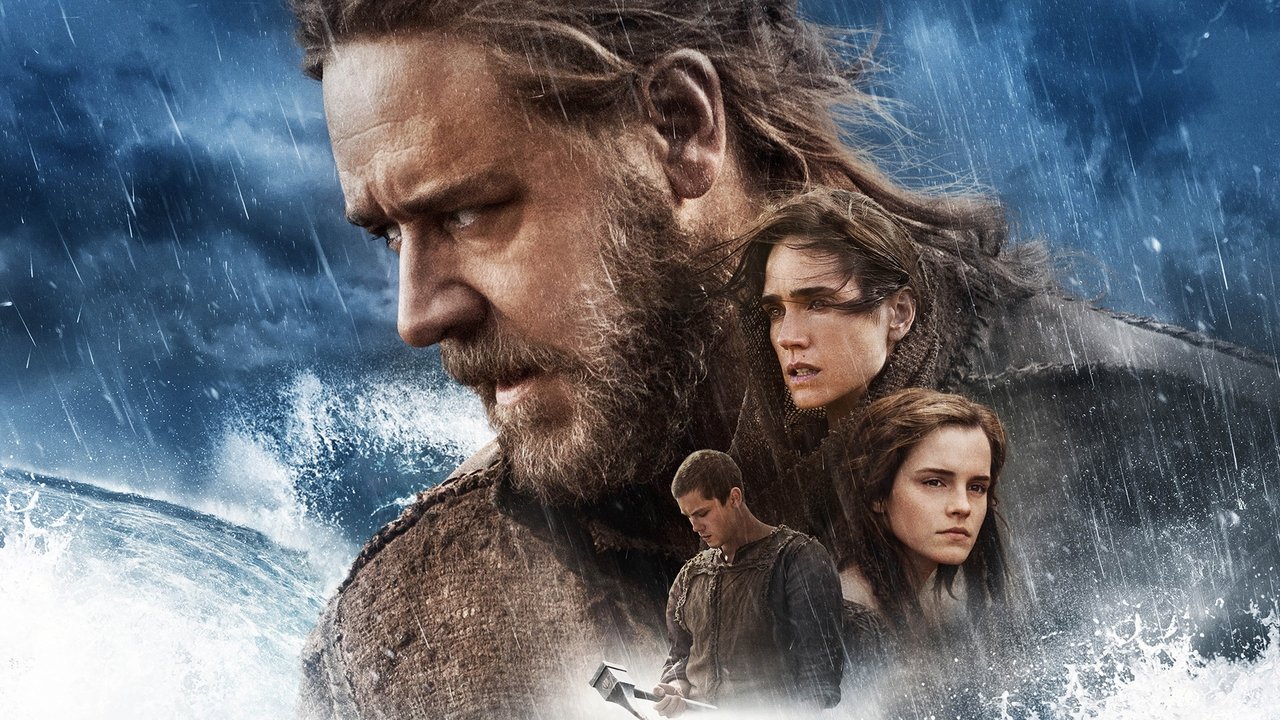The Biblical Epic Reimagined
In the realm of cinema analysis, Darren Aronofsky's 2014 interpretation of 'Noah' arrives not with the soft whispers of a Sunday school lesson but with the thunderous roar of an impending apocalypse. This action, adventure, and drama film seeks to blend rich storytelling with special effects and metaphysical musings. Starring Russell Crowe as the titular Noah, you're thrust into a world poised on the precipice of obliteration. Welcome to our movie review where we navigate these stormy cinematic waters with both reverence and skepticism.
A Tidal Wave of Themes and Symbols
The essence of Aronofsky's vision is a grand biblical narrative with a modern twist. Chosen by God, Noah is tasked with building an ark to survive an apocalyptic flood. As the story unfolds, it becomes clear that the mission is less about an ark and more about humanity's ethical forks in the road. The film uses this ancient story to explore contemporary questions: What does it mean to be chosen? How does one balance justice with compassion? Noah is neither your typical blockbuster nor a humble parable. It lives confidently in the in-between, challenging viewers to ponder its deeper meanings while enjoying the visual spectacle. Oh, and if you think you're just here for the quaint tale of salvation, think again—Aronofsky weaves a labyrinth of thought-provoking dilemmas and visual artistry that's both hypnotic and, at times, a little bewildering.
Stars That Shine Amidst the Deluge
With a stellar cast including Jennifer Connelly, Ray Winstone, Anthony Hopkins, and Emma Watson, the film's acting pedigree is top-notch. Russell Crowe delivers a passionate and sometimes stormy portrayal of Noah, crafting a character who is part prophet, part warrior. Jennifer Connelly, playing Noah's wife Naameh, brings both strength and tenderness, offering a counterpoint to Crowe's often relentless determination. Anthony Hopkins as Methuselah adds a touch of whimsical gravitas, reminding us that sagacity can sometimes wear an impish grin. The performance that caught me off-guard was Emma Watson’s; she sprinkles her scenes with emotional depth that resonates long after the floodwaters recede. However, it's worth noting that while these performances shine, they occasionally struggle against the screenplay's obtuse narrative and uneven pacing. Aronofsky, revered for his ability to squeeze emotion from stone, tries but doesn't fully succeed in balancing the sacred and the surreal.
Comparisons to Previous Epics and Aronofsky’s Journey
If you're craving biblical epics, 'Noah' swims alongside giants like 'The Ten Commandments' and 'Ben-Hur,' but with the added quirk of contemporary existential pondering. In comparison to Aronofsky's other works—like 'Black Swan' or 'Requiem for a Dream'—Noah is a kaleidoscope of ambition, teeming with the director's signature style of intertwining visual flair with psychological depth. Unlike his past ventures into the human psyche, which often left audiences breathless yet satisfied, 'Noah' can feel a bit like staring too long into an abstract painting. You're not quite sure what you're seeing, but you know it's significant. It may not reach the haunting heights of his earlier projects, but it certainly stakes its own claim in the realm of film critique.
The Final Surge: To Watch or Not to Watch?
Is 'Noah' a must-watch film? It depends on what floats your boat, pun entirely intended. For those who revel in a concoction of philosophical discourse with a side of grandeur, prepare to set sail. But if you’re seeking straightforward biblical storytelling, you might find yourself metaphorically lost at sea. At its heart, 'Noah' is an ambitious endeavor that doesn’t hesitate to dive deep into the waters of human morality and divine intervention. It might not make waves as one of the best drama movies, but its splash in the world of cinema analysis is undeniable. So, if the idea of exploring such weighty questions appeals, don’t skip this Ark.

